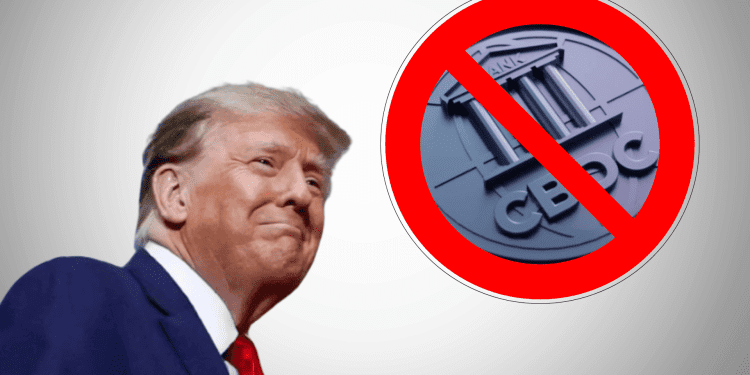- Former President Trump and Governor Ron DeSantis have criticized central bank digital currencies (CBDCs), claiming they allow governments to control people’s finances
- Trump pledged to never allow CBDCs if elected president in 2024, echoing growing apprehension among some political figures about CBDCs
- The opposition to CBDCs signals a pivotal moment in the debate on digital currencies and their role in society, highlighting uncertainties around financial innovation and personal liberties
Former President Donald Trump has renewed his criticism of central bank digital currencies (CBDCs), claiming they pose a threat to individual liberties. His stance echoes growing apprehension among some political figures about the implications of CBDCs.
Trump’s Comments in New Hampshire
During a recent campaign event in New Hampshire, Trump reiterated his opposition to CBDCs, saying they would allow governments to “take your money” without people realizing it. He pledged to never allow their creation if elected president.
Support from Governor Ron DeSantis
Trump’s remarks echo those of Florida Governor Ron DeSantis, who dropped out of the 2024 race and endorsed Trump. DeSantis has criticized CBDCs as “woke politics” used for controlling people. Now Trump is amplifying these concerns on the national stage.
Broader Debate on the Future of Money
The opposition to CBDCs comes amid a broader debate on the future of money, with decentralized and state-backed digital currencies vying for prominence. As the 2024 election approaches, this debate around financial innovation and individual liberty will likely intensify.
Political Dimensions of the CBDC Debate
Trump and DeSantis’ stance highlights the political dimensions of the CBDC debate. Their opposition signals a pivotal moment in the discourse on digital currencies and their role in society. The future balance between innovation and personal freedoms remains unsettled.
Conclusion
The growing criticism of CBDCs by major political figures underscores broader uncertainties surrounding these state-backed digital currencies. With the 2024 race heating up, this debate will likely become increasingly prominent on the national stage. The eventual outcome will shape the future of money and financial freedom.














